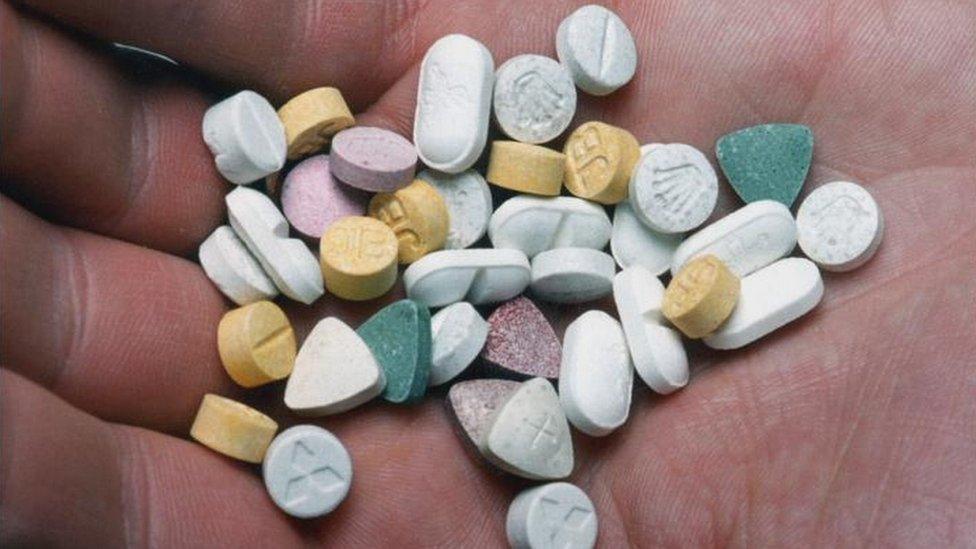Teesside faces 'scourge' of drug deaths increase
- Published

Drug deaths on Teesside have risen by nearly 40% in a year.
Deaths in Middlesbrough, Hartlepool, Stockton-on-Tees, and Redcar and Cleveland increased last year to 123, from 88 in 2019.
This was the highest number since records began in 1993. An operation launched by Cleveland Police in May had seized £2m of drugs by the end of June.
Middlesbrough councillor David Coupe said the town needed to be rid of the "scourge".
Health scrutiny panel chair Mr Coupe said: "You can help as many people as you like, and I am in favour of this, but the drug dealers will just find some other person to push things like that on.
"If it's a supply problem in Middlesbrough [you need to] actually cut the serpent off at its head to try and stop some of the drugs coming in.
"I hate to think that Middlesbrough is known as a bad drugs capital but it is, and depravity, unfortunately, comes with it."
'Difficult situation worse'
Middlesbrough was one of five areas in the country targeted by Project ADDER, external (Addiction, Diversion, Disruption, Enforcement and Recovery), set up to tackle drug use, the Local Democracy Reporting Service said.
Programme manager Jonathan Bowden said: "The rate of drug-related deaths continues to rise nationally and is especially prevalent in the North East.
"Following years of budget constraints, we are now in a position where dedicated funding is available to invest into specialist support."
The pandemic had made "difficult situations worse for many people", he said.
"Issues such as isolation and financial uncertainty have increased the vulnerability of people with a history of problems linked to drug use."

Follow BBC North East & Cumbria on Twitter, external, Facebook, external and Instagram, external. Send your story ideas to northeastandcumbria@bbc.co.uk, external.